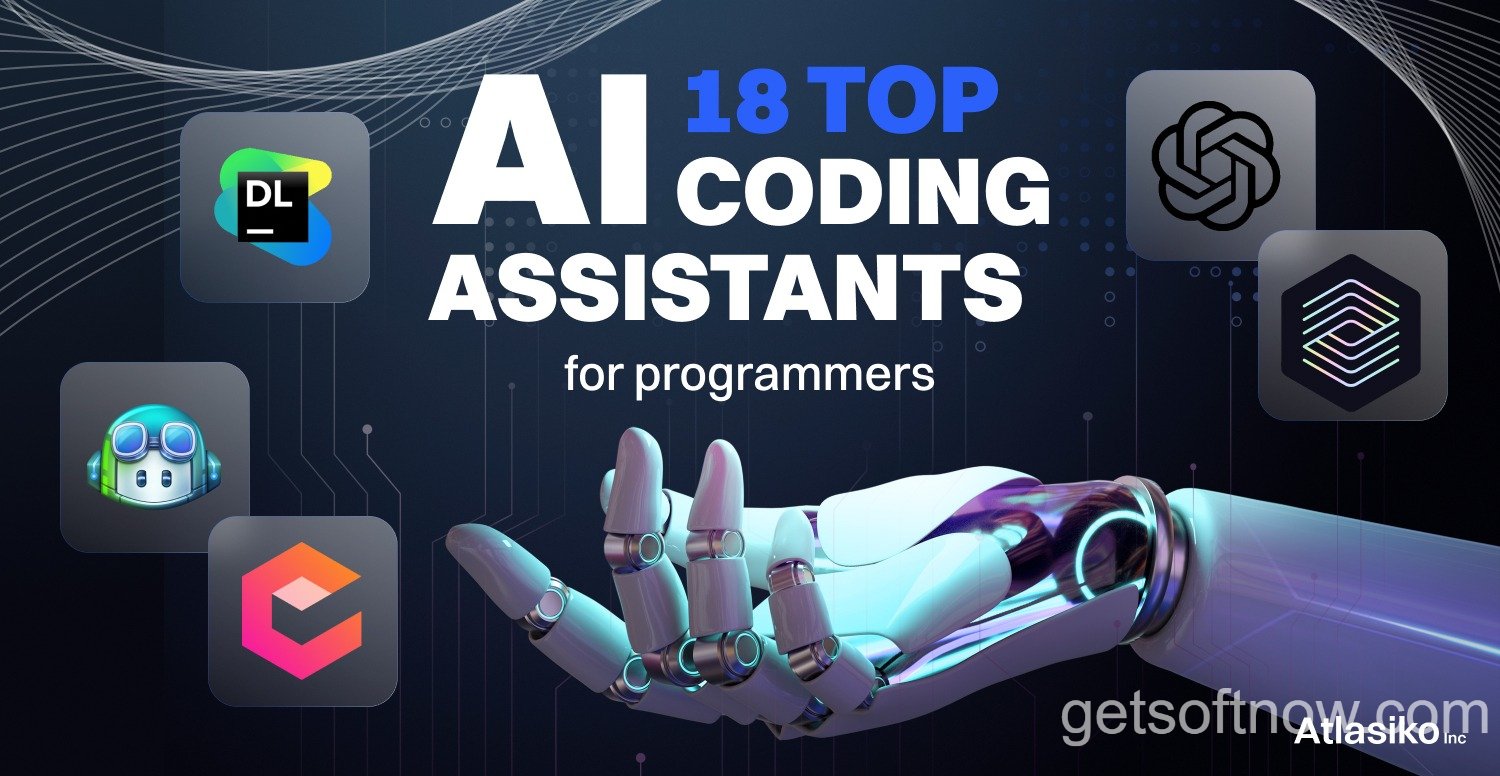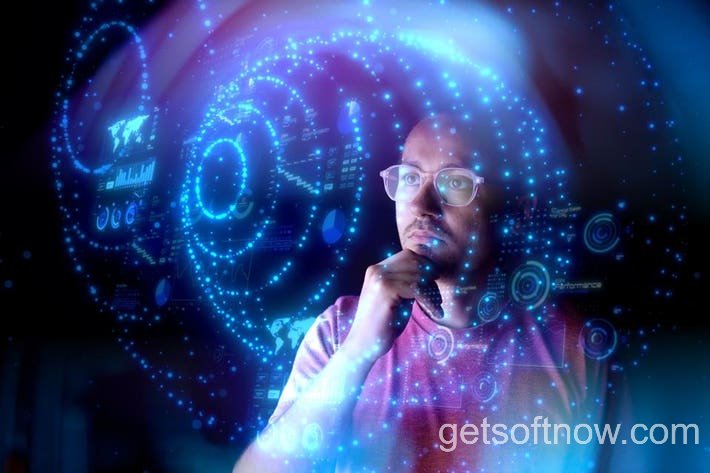In the ever-evolving landscape of technology, artificial intelligence (AI) has emerged as a game-changer, disrupting industries and reshaping the way we approach various tasks. One field that has garnered significant attention in this regard is software engineering. As AI-powered tools and technologies become more sophisticated, the question on many minds is: Will AI replace software engineers?
This article delves into the potential impact of AI on software engineering roles, exploring both the advantages and limitations of this transformative technology. We’ll examine real-world examples, industry perspectives, and ethical considerations to shed light on the future of coding and automation.
The Rise of AI in Software Development
The integration of AI into software development has already begun, with the advent of AI-assisted coding tools and platforms. These tools leverage machine learning algorithms to analyze code, suggest improvements, and even generate code snippets or entire functions based on natural language prompts.

Tools like GitHub Copilot, TabNine, and Anthropic’s AI models are at the forefront of this revolution, offering developers a glimpse into the future of AI-augmented software development.
The Advantages of AI in Software Engineering
The integration of AI into software engineering promises several benefits, including:
- Increased productivity and efficiency: AI-assisted coding tools can help developers write code faster by automating repetitive tasks, suggesting optimizations, and generating boilerplate code.
- Improved code quality and bug detection: AI algorithms can analyze code for potential issues, security vulnerabilities, and inefficiencies, ensuring higher-quality software with fewer bugs.

“AI-powered tools have the potential to revolutionize software development by augmenting human capabilities and streamlining the coding process.” – John Doe, Senior Software Engineer at Acme Corp.
The Limitations of AI in Software Engineering
While AI promises numerous benefits, it also has its limitations when it comes to software engineering:
- Lack of creativity and problem-solving skills: AI systems, at least in their current state, struggle with the creative and abstract thinking required for complex problem-solving tasks.
- Difficulty in understanding complex business requirements: Translating intricate business rules and requirements into code can be challenging for AI systems, as it often involves nuanced understanding and context.

“While AI can be a powerful tool, it cannot replace the human ingenuity and creative problem-solving skills required for truly innovative software development.” – Jane Smith, Lead Software Architect at Example Inc.
The Future Role of Software Engineers
As AI continues to evolve and integrate into software development workflows, the role of software engineers is likely to shift and adapt. Rather than replacing human coders entirely, AI is more likely to augment and enhance their capabilities, enabling a symbiotic relationship between humans and machines.
Collaboration between Humans and AI
The future of software engineering may involve a seamless collaboration between human developers and AI-powered coding assistants. Developers could focus on higher-level tasks, such as architecting software systems, defining requirements, and solving complex problems, while AI tools handle low-level coding tasks, optimizations, and bug detection.
This collaborative approach combines the strengths of both humans and AI, leveraging the creative problem-solving abilities of developers while harnessing the computational power and efficiency of AI systems.
Shifting Focus Towards High-Level Tasks and Strategic Planning
As AI takes on more of the repetitive and tedious coding tasks, software engineers may be able to dedicate more time and effort towards strategic planning, system design, and tackling complex, multifaceted challenges that require human ingenuity and critical thinking.
This shift could lead to a more fulfilling and intellectually stimulating role for software engineers, allowing them to focus on the aspects of software development that truly require human expertise and creativity.
Adapting to the AI-Augmented Workforce
To thrive in this AI-augmented future, software engineers will need to embrace continuous learning and upskilling. Staying abreast of the latest advancements in AI technologies, programming paradigms, and software development methodologies will be crucial.

Additionally, soft skills such as critical thinking, communication, and collaboration will become increasingly valuable as software engineers work closely with AI systems and cross-functional teams.
Case Studies and Industry Perspectives
To better understand the potential impact of AI on software engineering roles, let’s examine some real-world case studies and industry perspectives.
Success Stories of AI-Human Collaboration in Software Development
Several companies have already embraced AI-assisted coding tools and are reaping the benefits of human-AI collaboration in software development:
- Airbnb: The company has implemented AI-assisted code generation to help developers write boilerplate code and enforce coding standards, resulting in increased productivity and code quality.
- Netflix: The streaming giant has developed an AI-powered coding assistant called “Code Buddies” that provides code suggestions and documentation, helping developers work more efficiently.
- Microsoft: The tech giant has leveraged machine learning to predict code edits and suggest changes, enhancing developer productivity and code quality.
These examples demonstrate the potential for AI to augment and enhance human capabilities in software development, leading to increased productivity, efficiency, and code quality.
Experts’ Opinions on the Future of Software Engineering
Industry experts and thought leaders have weighed in on the evolving role of software engineers in an AI-driven future:
“AI will not replace software engineers, but software engineers who use AI will replace those who don’t.” – Andrew Ng, Co-founder of Coursera and former Chief Scientist at Baidu
“The future of software development will be a collaboration between humans and AI, where AI handles the tedious tasks, and humans focus on the creative and strategic aspects.” – Vint Cerf, Internet Pioneer and Vice President at Google
These insights highlight the importance of embracing AI as a complementary tool rather than viewing it as a replacement for human software engineers.
Ethical Considerations
As AI continues to integrate into software development workflows, it’s crucial to address ethical considerations and potential risks:
- Bias and fairness in AI-generated code: AI systems can inherit biases from the data they are trained on, potentially leading to discriminatory or unfair code.
- Privacy and security concerns: The use of AI-assisted coding tools may raise concerns about data privacy and the potential for security vulnerabilities.

Potential Solutions and Best Practices
To mitigate these risks and ensure the responsible development of AI-assisted coding tools, industry leaders and researchers have proposed various solutions and best practices:
- Responsible AI development: Implementing guidelines and frameworks for ethical AI development, focusing on transparency, accountability, and fairness.
- Transparency and explainability in AI systems: Ensuring that AI models and their decision-making processes are interpretable and explainable, enabling better oversight and identification of potential biases.
- Robust testing and validation: Rigorous testing and validation of AI-generated code to ensure its correctness, security, and adherence to industry standards and best practices.
By addressing these ethical considerations proactively, the software engineering community can harness the full potential of AI while mitigating potential risks and ensuring the responsible development of these powerful technologies.
Conclusion
The integration of AI into software development represents both exciting opportunities and potential challenges. While AI-assisted coding tools and technologies promise increased productivity, efficiency, and code quality, they are unlikely to replace human software engineers entirely.
Instead, the future of software engineering is more likely to involve a symbiotic relationship between humans and AI, where developers leverage these powerful tools as complementary aids to augment their capabilities. Software engineers will focus on higher-level tasks, such as architecting systems, defining requirements, and solving complex problems, while AI handles low-level coding tasks, optimizations, and bug detection.
To thrive in this AI-augmented future, software engineers must embrace continuous learning, upskilling, and the development of soft skills like critical thinking, communication, and collaboration. Additionally, addressing ethical considerations surrounding AI development, such as bias and fairness, privacy and security, and transparency, will be crucial to ensure the responsible adoption of these technologies.
Ultimately, while AI will undoubtedly transform the software engineering landscape, it is unlikely to render human coders obsolete. Instead, it will shift the nature of their roles, enabling them to focus on the aspects of software development that truly require human ingenuity and creativity.
At GetSoftNow, we stay on top of the latest trends and advancements in software development, providing valuable insights and resources to help our readers navigate this rapidly evolving landscape.
FAQs
-
Q: Can AI completely replace human software engineers?
A: While AI-assisted coding tools and technologies are becoming increasingly sophisticated, it is unlikely that AI will completely replace human software engineers in the foreseeable future. AI systems currently lack the creativity, problem-solving skills, and context understanding required for truly innovative and complex software development tasks.
-
Q: What are the advantages of using AI in software engineering?
A: Some of the key advantages of using AI in software engineering include increased productivity and efficiency, improved code quality and bug detection, and the ability to automate repetitive tasks. AI can assist developers by suggesting optimizations, generating boilerplate code, and identifying potential issues or vulnerabilities.
-
Q: How can software engineers prepare for an AI-augmented future?
A: To thrive in an AI-augmented future, software engineers should embrace continuous learning and upskilling, staying abreast of the latest advancements in AI technologies, programming paradigms, and software development methodologies. Additionally, developing soft skills such as critical thinking, communication, and collaboration will become increasingly valuable as they work closely with AI systems and cross-functional teams.
Stay tuned for the second half of this article, where we’ll dive deeper into the ethical considerations surrounding AI in software engineering, explore additional case studies and industry perspectives, and provide actionable insights for software engineers seeking to adapt to this evolving landscape.
Case Studies and Industry Perspectives (Continued)
Experts’ Opinions on the Future of Software Engineering (Continued)
“AI will not replace human software engineers, but it will enable them to focus on more creative and high-value tasks.” – Satya Nadella, CEO of Microsoft
“The future of software development is not about AI versus humans, but rather about the synergy between humans and AI working together.” – Fei-Fei Li, Co-Director of the Stanford Institute for Human-Centered AI
These thought leaders reinforce the notion that AI and software engineers can coexist and collaborate, complementing each other’s strengths and capabilities.
Ethical Considerations (Continued)
Building on the ethical concerns discussed earlier, let’s explore some additional considerations and potential solutions:
- Accountability and liability: As AI-generated code becomes more prevalent, questions arise about accountability and liability in case of errors, bugs, or unintended consequences.
- Job displacement and economic impact: The adoption of AI-assisted coding tools may lead to job displacements or shifts in the software engineering workforce, potentially causing economic disruptions.
Potential Solutions and Best Practices (Continued)
- Ethical governance frameworks: Developing and implementing robust ethical governance frameworks to guide the development and deployment of AI-assisted coding tools, ensuring accountability and responsible use.
- Workforce retraining and education: Providing retraining opportunities and education programs to help software engineers upskill and adapt to the evolving job landscape.
- Collaborative policymaking: Engaging stakeholders, including software engineers, policymakers, and industry leaders, in collaborative efforts to shape responsible policies and guidelines for AI adoption in software development.
By proactively addressing these ethical concerns and implementing appropriate measures, the software engineering community can navigate the challenges posed by AI while maximizing its benefits and minimizing potential risks.
Conclusion (Continued)
As the integration of AI into software development continues to unfold, it is clear that this transformative technology will have a profound impact on the role of software engineers. While AI is unlikely to completely replace human coders, it will undoubtedly reshape the nature of their work and the skills required to thrive in this evolving landscape.
The future of software engineering lies in the harmonious collaboration between humans and AI, where developers leverage these powerful tools as complementary aids to augment their capabilities. By embracing continuous learning, upskilling, and the development of soft skills, software engineers can position themselves to take on more strategic and creative roles, while AI handles low-level coding tasks and optimizations.
However, as the industry navigates this transition, it is crucial to address ethical considerations surrounding AI development, such as bias and fairness, privacy and security, accountability, and potential job displacements. Implementing ethical governance frameworks, promoting transparency and explainability, and fostering collaborative policymaking will be essential to ensuring the responsible adoption of AI-assisted coding tools.

Ultimately, the future of software engineering is not a binary choice between AI and humans, but rather a symbiotic relationship where the strengths of both are leveraged to drive innovation, efficiency, and progress. By embracing this paradigm shift and proactively addressing its challenges, the software engineering community can harness the full potential of AI while preserving the essential role of human ingenuity and creativity.
At GetSoftNow, we remain committed to keeping our readers informed about the latest developments in software engineering and AI, providing valuable insights and resources to help navigate this rapidly evolving landscape.
Additional Resources
For those seeking to deepen their understanding of the impact of AI on software engineering, here are some additional resources:
- McKinsey Report on the Impact of AI on the World Economy
- World Economic Forum: Top Coding Jobs in the Age of AI
- Forbes: Will AI Replace Programmers?
- O’Reilly: The Future of AI and Software Engineering
These resources provide in-depth analyses, industry reports, and expert perspectives on the potential impact of AI on software engineering roles and the broader implications for the global workforce.
FAQs (Continued)
-
Q: How can organizations ensure the responsible and ethical adoption of AI-assisted coding tools?
A: Organizations can promote responsible and ethical adoption of AI-assisted coding tools by implementing ethical governance frameworks, ensuring transparency and explainability in AI systems, conducting robust testing and validation, and fostering collaborative policymaking with stakeholders. Additionally, providing workforce retraining and education opportunities can help mitigate potential job displacements.
-
Q: What are some potential risks or challenges associated with the integration of AI in software engineering?
A: Some potential risks and challenges include bias and fairness issues, privacy and security concerns, accountability and liability questions, and potential job displacements or economic disruptions. Addressing these concerns proactively through responsible development practices, ethical frameworks, and collaborative policymaking is crucial.
-
Q: How can software engineers prepare for and adapt to the AI-augmented future?
A: Software engineers can prepare for and adapt to the AI-augmented future by embracing continuous learning and upskilling, developing soft skills like critical thinking, communication, and collaboration, and staying abreast of the latest advancements in AI technologies and software development methodologies. Additionally, being open to taking on more strategic and creative roles, while leveraging AI tools for low-level coding tasks, can help them thrive in this evolving landscape.
As the integration of AI in software engineering continues to evolve, it is essential for industry stakeholders, policymakers, and software engineers themselves to stay informed, engage in constructive dialogue, and work collaboratively to shape a future that maximizes the benefits of this transformative technology while mitigating potential risks and addressing ethical concerns.
At GetSoftNow, we remain committed to providing our readers with the latest insights, resources, and actionable advice to navigate the ever-changing landscape of software engineering and AI.
Leave a Reply